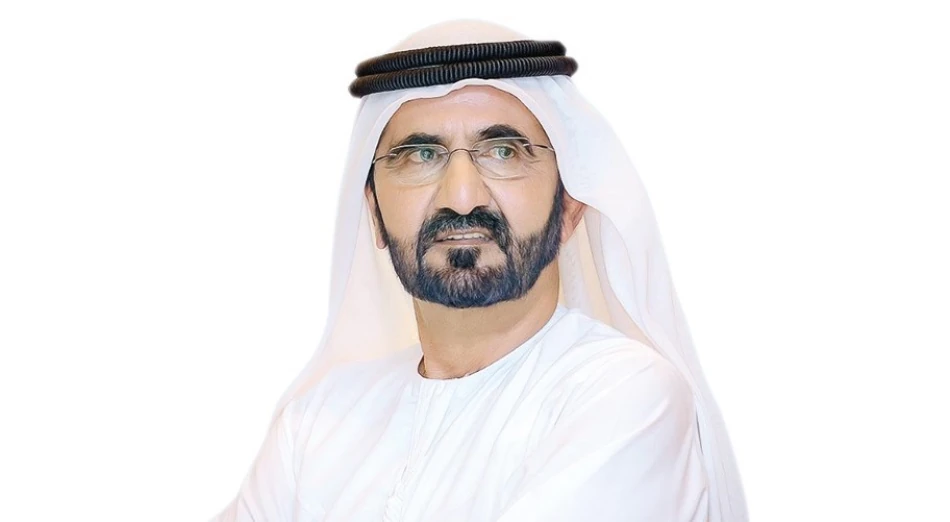
Dubai's Ruler Issues Law Amending Dispute Resolution Regulations
Dubai Overhauls Alternative Dispute Resolution Framework to Boost Commercial Confidence
Dubai has enacted sweeping reforms to its mediation and alternative dispute resolution system, positioning the emirate as a more attractive destination for international business by offering faster, more confidential ways to resolve commercial conflicts. The new law, issued by Sheikh Mohammed bin Rashid Al Maktoum, represents a strategic move to reduce court backlogs while strengthening Dubai's reputation as a business-friendly jurisdiction.
Streamlined Mediation Process Targets Business Disputes
The amended Law No. 9 of 2025 fundamentally restructures how disputes are handled in Dubai, replacing ten articles from the original 2021 legislation. The reforms establish clear pathways for mandatory mediation through the Amicable Settlement Center for Disputes and the Family Reform and Guidance Committee, with cases now processed through Dubai Courts' electronic system under judicial supervision.
The legislation requires most commercial disputes to undergo mediation before reaching traditional courts, a move that mirrors successful models in Singapore and the UAE's broader push toward becoming a regional arbitration hub. This mandatory pre-litigation mediation could significantly reduce the time and cost of resolving business conflicts.
Strategic Exclusions Protect Critical Legal Areas
The new framework carefully excludes certain sensitive matters from mediation, including urgent applications, inheritance disputes, and cases involving marriage or divorce verification. This selective approach ensures that mediation is applied where it can be most effective while preserving traditional court processes for matters requiring formal legal determination.
Expert Integration Enhances Technical Dispute Resolution
A notable innovation allows mediation centers to engage technical experts for specialized disputes, with clear guidelines on fees, timelines, and responsibilities. This provision addresses a common weakness in alternative dispute resolution systems where complex technical or financial matters often require specialized knowledge.
Enforcement Powers Give Mediation Real Teeth
Perhaps most significantly, the law grants mediation agreements the same enforcement power as court judgments once properly certified. This eliminates a major weakness in many mediation systems where parties could simply ignore agreed settlements. The legislation includes strict timelines for challenges—only five business days to contest agreements on grounds of fraud or misrepresentation.
The limited appeal process, with final decisions made by primary court judges within five business days, suggests Dubai is prioritizing finality over extensive review procedures. This approach should appeal to international businesses seeking quick resolution of disputes.
Market Implications for Dubai's Business Environment
For international investors and companies operating in Dubai, these reforms offer several advantages. Reduced legal costs through faster resolution, enhanced confidentiality compared to public court proceedings, and preserved business relationships through collaborative rather than adversarial processes.
The reforms align with Dubai's broader economic strategy of attracting international businesses and positioning itself as a regional commercial hub. By offering sophisticated dispute resolution mechanisms, Dubai is competing directly with established arbitration centers in London, Singapore, and Hong Kong.
Regional Context and Competitive Positioning
This legislative update reflects growing competition among Gulf states to attract international business. The UAE's recent corporate law reforms, combined with these dispute resolution enhancements, create a more comprehensive legal framework for international commerce. Saudi Arabia's similar moves toward commercial court modernization suggest a regional trend toward more business-friendly legal systems.
The emphasis on electronic processing and streamlined procedures also positions Dubai well for the post-pandemic business environment, where remote and digital-first processes have become standard expectations rather than conveniences.
Implementation Timeline and Practical Impact
The law takes effect immediately upon publication in the official gazette, with existing procedures remaining in place until new implementing regulations are issued. This transition approach should minimize disruption while allowing time for legal practitioners and businesses to adapt to the new framework.
The success of these reforms will likely depend on the quality of mediators and the business community's willingness to embrace alternative dispute resolution. Dubai's track record of implementing business-friendly reforms suggests strong government support for making the system work effectively in practice.
Most Viewed News

 Sara Khaled
Sara Khaled






